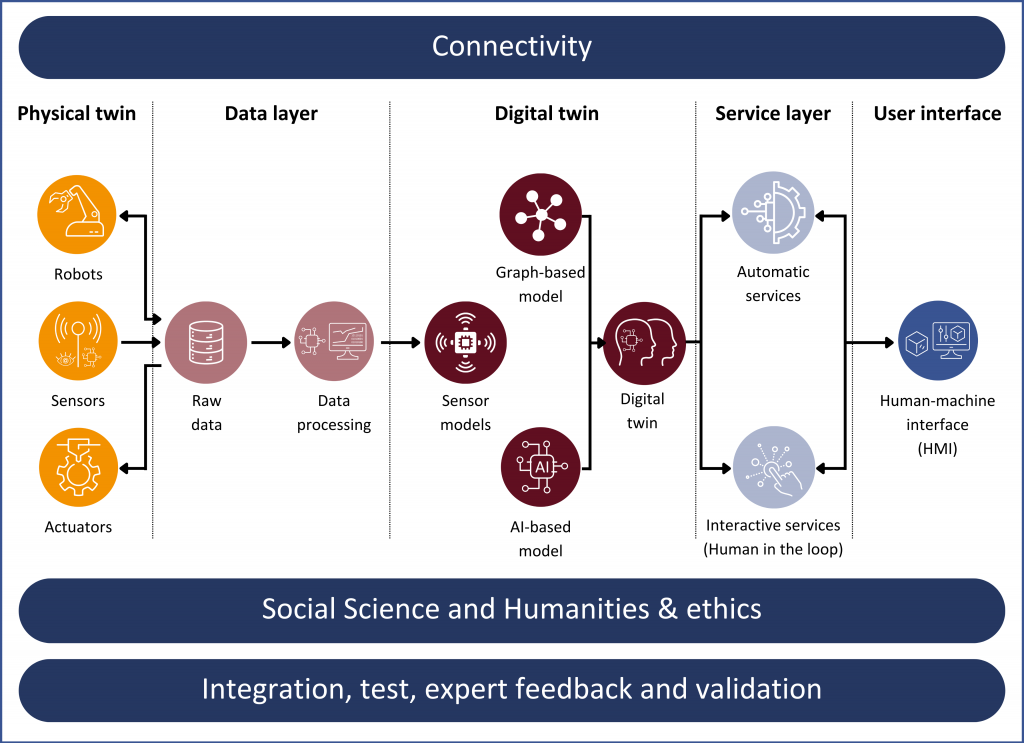Approach
We plan to expand the COGNITWIN Toolbox for deploying DTs in manufacturing and robotics. The pipeline includes sensing, knowledge, reasoning, and action steps. The Toolbox manages data, provides semantic maps, and uses simulation libraries based on Robot Operating System (ROS).
We aim to create a multimodal sensing system for cognitive manufacturing and robotics, with sensor suites designed for the use cases. The glass fibre pilot will use cameras, lasers and other sensors to gather detailed information. The precision machining and additive manufacturing pilot will use advanced cameras and light-based sensors. The steel manufacturing pilot will focus on sensors for safety, identifying products and storage and helping drones navigate safely in harsh indoor conditions.
We aim to create a machine-learning toolbox for tasks like fibre break detection, classification and safety prediction. It combines deep neural networks and graphical models for efficient sensor analysis. The project focuses on handling large datasets and enabling on-board AI for low-power computing. Challenges include real-time interpretation of portable hardware. Solutions include reduced network precision, smaller networks and new convolution approaches.
Robot guidance for deburring/additive manufacturing: Optimal path planning for deburring/additive manufacturing using 3D maps and vision-based navigation. Continuous learning and safety measures ensure high-quality workmanship.
Drone for autonomous detection in metal production: Multi-drone solution for steel production warehousing, optimising logistics through RFID-based detection and active area mapping.
Collaborative robotics: Safe and efficient collaboration between robots, humans and machines. Long-term SLAM system and shared-awareness framework enhance performance.
COGNIMAN aims for human-centric smart manufacturing by exploring human-machine-robot teaming and developing guidance procedures. These key research questions will be investigated: optimal human-AI relationship and principles of interaction and achieving explainable, trustworthy and ethical AI. The project utilises human-in-the-loop AI learning for improved training and system output.

